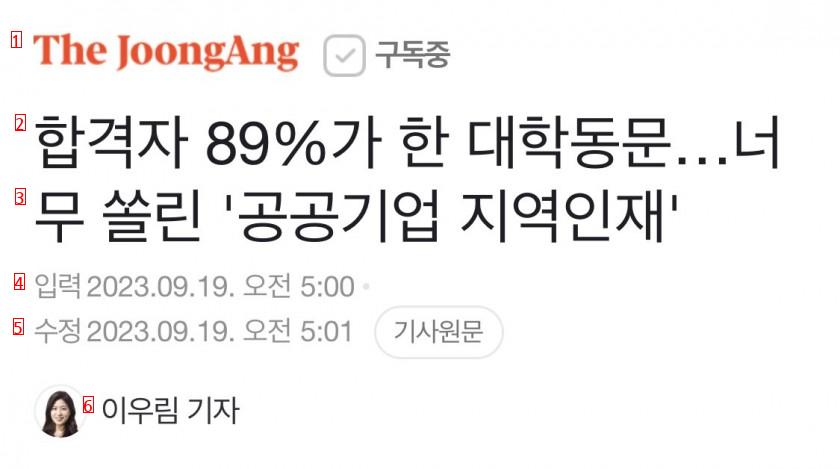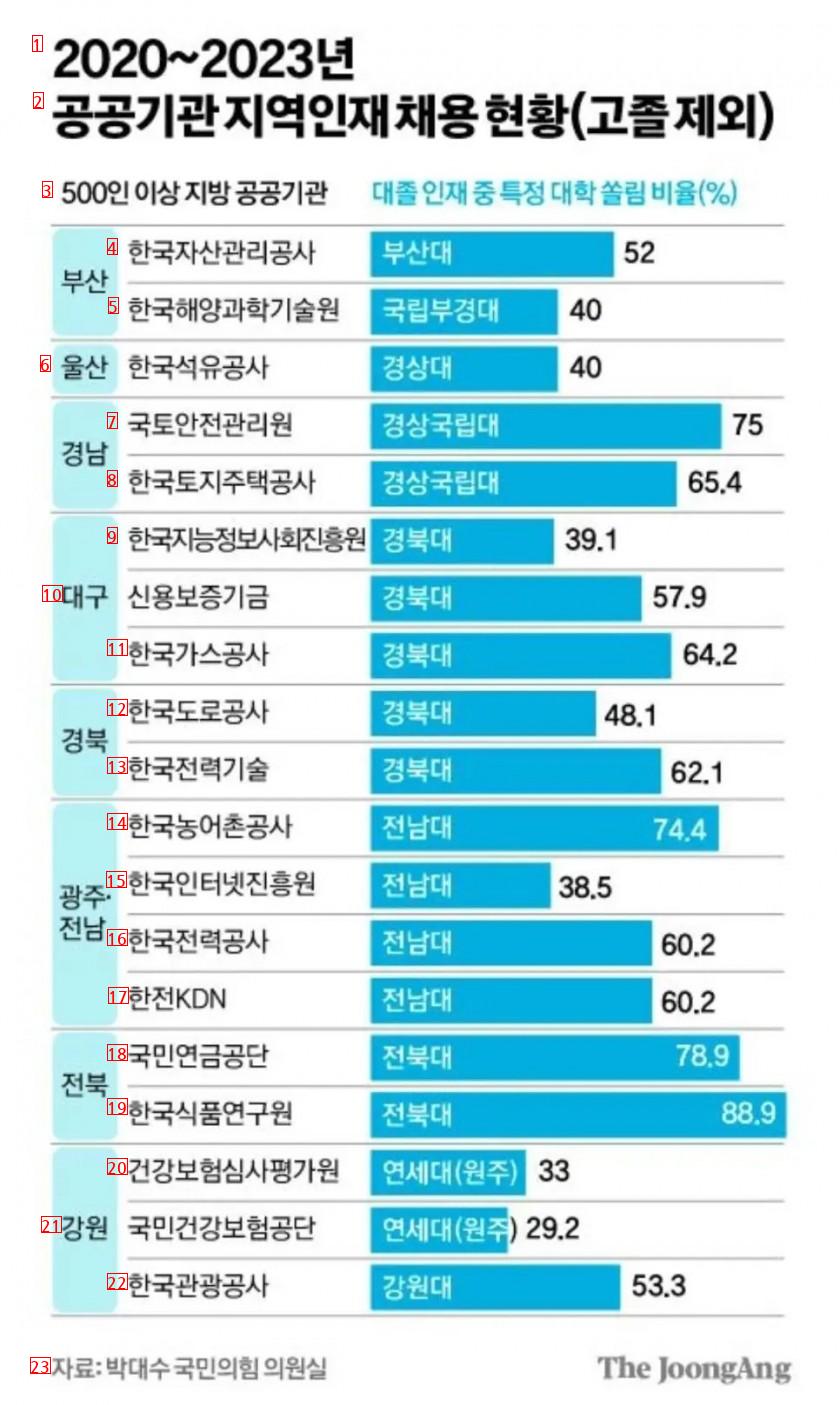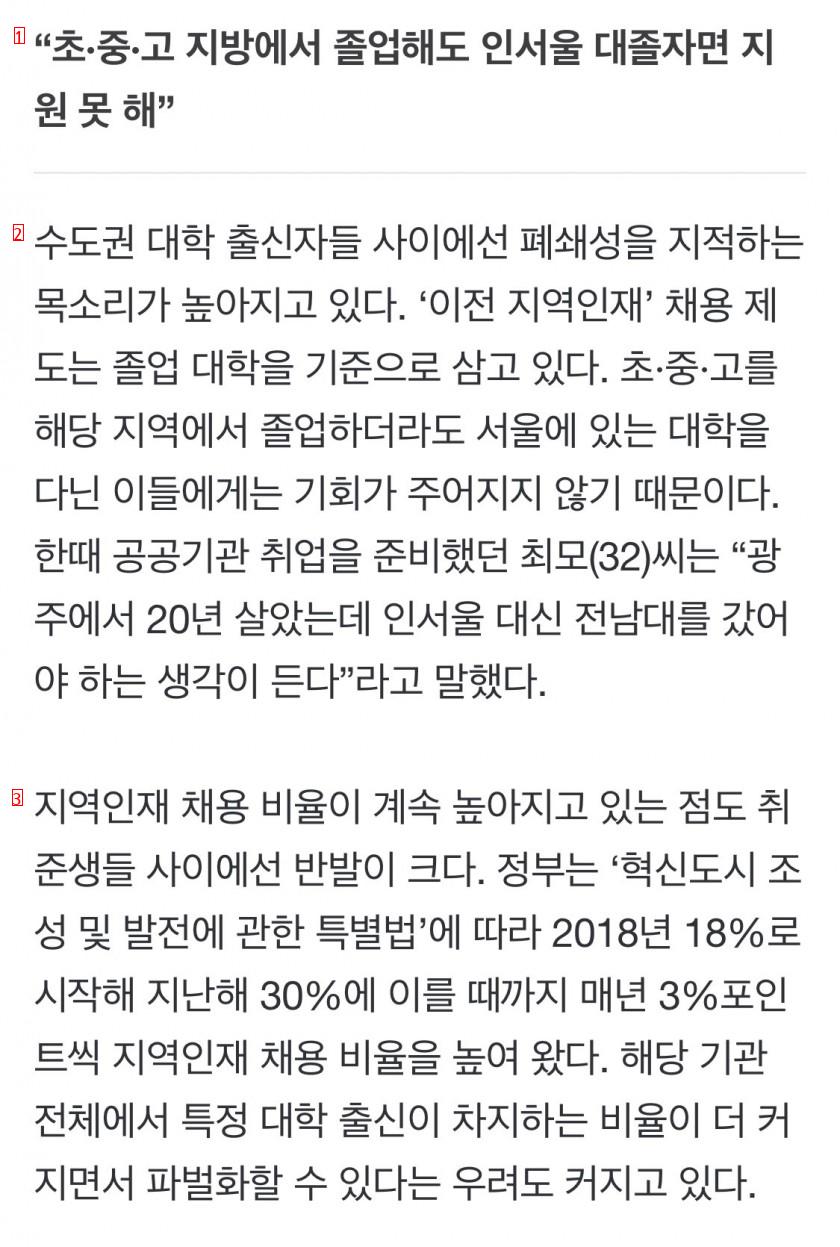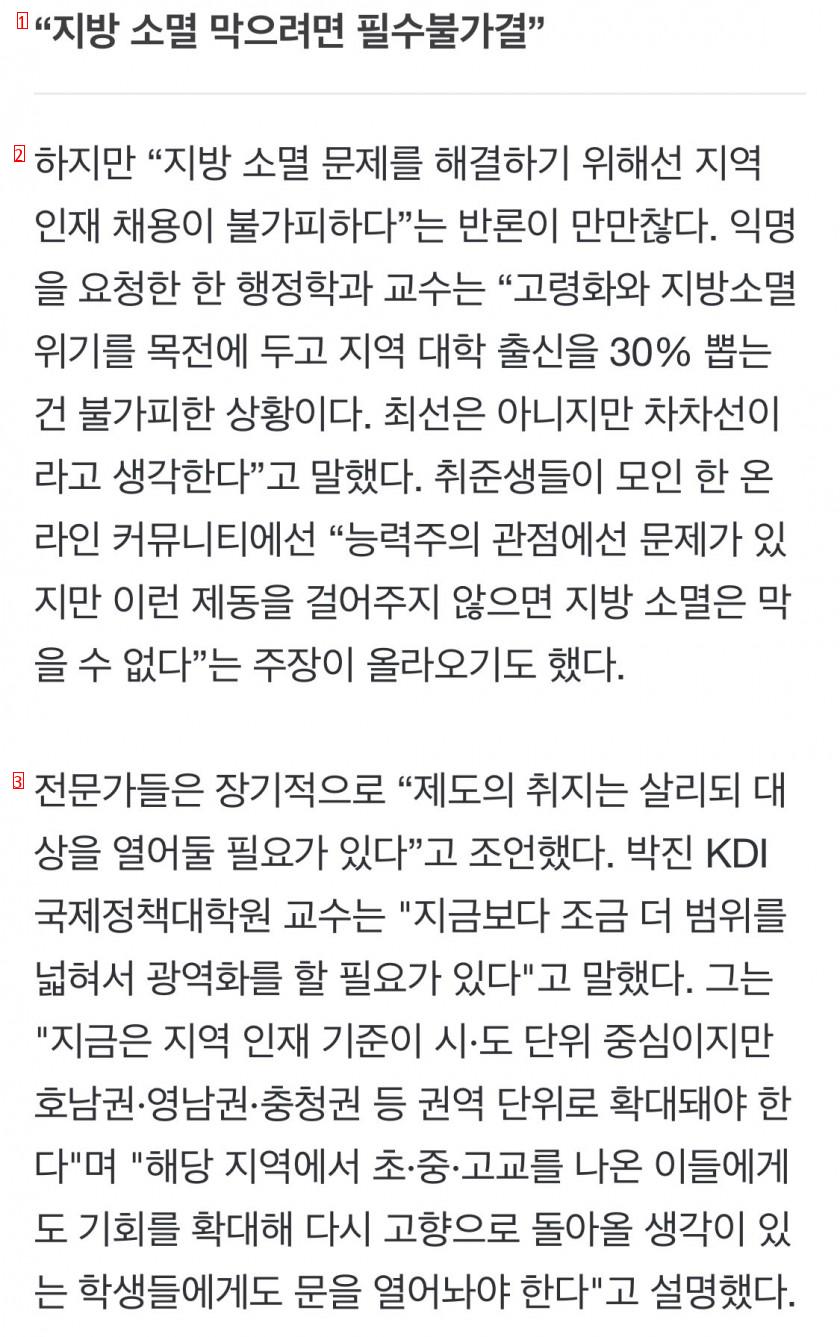(1)I’m subscribing to The Joong Ang
image text translation
(2)89 successful applicants from the same university
(3)Local talent in public enterprises
(4)Input 20230919 AM 500 ·
(5)Correction 20230919 AM 501 Article Letter
(6)Reporter Lee Woo-rim
(1)2020-2023
image text translation
(2)Employment status of local talent in public institutions Excluding high school graduates
(3)Percentage of college graduates from local public institutions with more than 500 employees concentrated on specific universities
(4)Korea Asset Management Corporation
(5)National Pukyong National University of Korea Ocean Science and Technology
(6)Ulsan Korea National Oil Corporation
(7)National University of Gyeongsang, Korea Land Safety Management Agency
(8)Korea Land and Housing Corporation
(9)Korea Intelligent Information Society Agency Kyungpook National University
(10)Daegu Credit Guarantee Fund
(11)Korea Gas Corporation
(12)Korea Expressway Corporation
(13)Korea Electric Power Technology Co., Ltd
(14)Korea Rural Community Corporation
(15)Korea Internet & Security Agency
(16)Korea Electric Power Corporation
(17)KEPCO KDN
(18)National Pension Service
(19)Korea Food Research Institute
(20)Health Insurance Review and Assessment Service Year-end Wonjoo 33
(21)Gangwon National Health Insurance Corporation’s annual shareholder 292
(22)Korea Tourism Organization
(23)Data Park Dae-soo’s Office of the People’s Power
(1)”Even if you graduate from elementary, middle and high schools, you can’t apply if you’re a college graduate in Seoul”
image text translation
(2)There is a growing voice among those who graduated from universities in the Seoul metropolitan area to point out the closeness The previous local talent recruitment system is based on graduation universities Even if they graduate from elementary, middle and high schools in the region, those who attended universities in Seoul will not be given an opportunityChoi, 32, who once prepared for employment at a public institution, said, “I’ve lived in Gwangju for 20 years, and I feel like I should have gone to Chonnam National University instead of In Seoul.”
(3)The fact that the ratio of local talent recruitment continues to rise is also highly opposed among job seekers. The government has been increasing the ratio of local talent recruitment by 3 points every year from 18 in 2018 to 30 last year under the “Special Act on the Creation and Development of Innovative Cities.” Concerns are growing that it could become factional as the proportion of graduates from certain universities in the entire institution increases
(1)”It’s essential to prevent the disappearance of fat”
image text translation
(2)However, many argue that it is inevitable to hire local talent to solve the problem of local extinction. A professor of public administration, who asked not to be named, said, “It is inevitable to hire 30 graduates from local universities on the verge of aging and local extinction.” I don’t think it’s the best, but I think it’s the next lane.” In an online community where job seekers gathered, there was a claim that “there is a problem from the perspective of meritocracy, but if you don’t put this brake on it, you can’t prevent the disappearance of the province.”
(3)Experts advised that in the long run, “the purpose of the system needs to be preserved, but the target needs to be left open.” Park Jin, a professor at the KDI Graduate School of International Policy, said, “We need to expand the scope a little more than now.” He explained that although local talent standards are now centered on cities and provinces, they should be expanded to regional units such as Honam, Yeongnam, and Chungcheong provinces, adding that opportunities should be expanded to those who graduated from elementary, middle and high schools in the area and the door should be opened to students who are thinking of returning to their hometowns
httpsnnewsnavercommnewsarticle0250003308787sid=101
